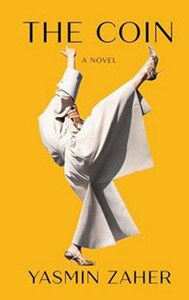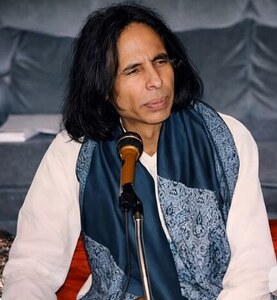IN recent years, there has been a continuing tendency in the West, to regard Muslims as “the alien Other” and to slot them into convenient stereotypes. British Muslim Fictions: Interviews with Contemporary Writers by Claire Chambers, the British academic, sets out to portray the complexity of Muslim culture through a collection of interviews of 13 writers of English language fiction living in Britain whose works reflect “a Muslim civilisational heritage”.
Chambers begins with the Lahore-born Tariq Ali, a writer whose life and work has been informed by Marxism but he has also written a quintet of historical novels, about the encounter between Islam and the West across the centuries, from the syncretic Euro-Arab culture of Andalusia and Sicily, to contemporary Pakistan. Ali, an incisive and out-spoken political analyst, addresses a diversity of other topics too in his interview, such as Cold War politics, Islamophobia and civil liberties. He says: “The more I read about the history and culture of Islam, the more I find that it is a very cosmopolitan religion.”
The conversation with Hanif Kureishi includes an extensive discussion on his 2008 novel, Something To Tell You, which welds past and present and incorporates the 7/7 bombing. Chambers also picks out themes that this novel shares with Kureishi’s 1995 novel, The Black Album, exploring the radicalisation of young British Muslims. Much of Kureishi’s earlier work focused on racism and neo-fascism in Britain fostered by the rhetoric of Enoch Powell. This is a subject that the Zanzibar born Abdulrazak Gurnah has also tackled but he also speaks to Chambers of literary borrowings and his interest in “the Indian Ocean and the shared history of its coastal regions”.
Chambers supplements each interview with an introduction to the writer and his/her work. She points out that Gurnah’s 1994 novel Paradise about the colonisation of East Africa, shares with Aamer Hussein’s story, “The Lost Cantos of the Silken Tiger” an intertextual reference to the “Yusuf Zulekha” legend. Chambers’ interview with the Karachi-born Hussein refers to his interest in Sufism and the Sufi lore of Sindh: both permeate his new novel, The Cloud Messenger. Chambers talks to Hussein extensively about migration and identity, and in particular his novella, Another Gulmohar Tree. Here, the Gulmohar, which came from Madagascar and is now a part of Karachi’s landscape, becomes a metaphor for the story of Lydia, the British wife of an Urdu writer and her adaptation to Pakistan.
Pakistan-born writer, Nadeem Aslam describes the influence of Chughtai on both the imagery and texture of his writing in his novel, Maps for Lost Lovers, set in an all-Asian community in north Britain. His recent novella, Leila in the Wilderness draws on the Laila Majnun legend as does Kamila’s Shamsie’s novel, Broken Verses which tells of a women’s rights activist and her love for a Marxist Urdu poet. Shamsie also discusses her latest novel, Burnt Shadows as well as the city of Karachi which is so central to most of her writing.
Interestingly, almost half the book consists of interview with writers of Pakistani origin. Usually they are discussed in relation to other South Asian English writers, but Pakistan also has strong links with the wider Muslim world. As Chambers points out, Pakistan English fiction and English writing from the Middle East and other Muslim cultures, often reflects common themes and tropes ranging from Quranic references to political views on Palestine and Iraq.
Mohsin Hamid novels, Moth Smoke and The Reluctant Fundamentalist, provide vivid images of Lahore, but also depict New York, before and after 9/11 and include a discourse on global capitalism and market imperialism. Hamid’s interview expands on these themes, and also dwells on issues such as the welfare state, immigration and race. The Syrian-Briton, Robin Yassin-Kassab refers to 9/11 too, in his novel, The Road from Damascus, which is set in London and Syria. His interview echoes the views of several others when he says, “ultimately, I want to be a writer, not a Muslim, Arab or British writer.”
The Sudanese-Egyptian writer, Leila Aboulela tells of the westernised milieu in which she grew up in Sudan and her decision to wear hijab, after her migration to Britain, long before it became a symbol of British identity politics. She describes the challenges of writing her recent historical novel, Lyrics Alley, which is set against the backdrop of colonial rule and leads up to Sudan’s struggle for independence: the main character, a paraplegic and a renowned singer/poet, is inspired by the story of her uncle.
Bangladeshi novelist, Tahmima Anam, has written about the 1971 War and indepen-dence of Bangladesh in her first novel, A Golden Age (2007). She followed it up with The Good Muslim (2010), exploring the growth of religious extremism in the present day: she elaborates on topics and issues related to both novels in her interview.
British Muslim Fictions culminates with an interview of Zahid Hussain, community worker, blogger, teacher, Poetry Slam champion and author of a novel, The Curry Mile which is set in Manchester. As such the interviews conducted by Chambers provide many insights into several different, talented and articulate writers whose work has consistently challenged stereotypes. Her book has much to offer both the academic and general reader — and it makes a very good read.
The reviewer is a writer and critic and has served two terms as the Regional Chairperson (Europe and South Asia) of the Commonwealth Writers Prize in 2010 and 2011
British Muslim Fictions: Interviews with Contemporary Writers (INTERVIEWS) By Claire Chambers Palgrave Macmillan, London ISBN 978-0-230-30878-7 368pp. £18.99

































